Related Research Articles

Hypertext is text displayed on a computer display or other electronic devices with references (hyperlinks) to other text that the reader can immediately access. Hypertext documents are interconnected by hyperlinks, which are typically activated by a mouse click, keypress set, or screen touch. Apart from text, the term "hypertext" is also sometimes used to describe tables, images, and other presentational content formats with integrated hyperlinks. Hypertext is one of the key underlying concepts of the World Wide Web, where Web pages are often written in the Hypertext Markup Language (HTML). As implemented on the Web, hypertext enables the easy-to-use publication of information over the Internet.

The Text Encoding Initiative (TEI) is a text-centric community of practice in the academic field of digital humanities, operating continuously since the 1980s. The community currently runs a mailing list, meetings and conference series, and maintains the TEI technical standard, a journal, a wiki, a GitHub repository and a toolchain.

Roberto Busa was an Italian Jesuit priest and one of the pioneers in the usage of computers for linguistic and literary analysis. He was the author of the Index Thomisticus, a complete lemmatization of the works of Saint Thomas Aquinas and of a few related authors.
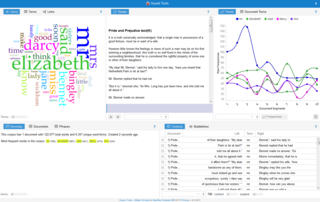
Digital humanities (DH) is an area of scholarly activity at the intersection of computing or digital technologies and the disciplines of the humanities. It includes the systematic use of digital resources in the humanities, as well as the analysis of their application. DH can be defined as new ways of doing scholarship that involve collaborative, transdisciplinary, and computationally engaged research, teaching, and publishing. It brings digital tools and methods to the study of the humanities with the recognition that the printed word is no longer the main medium for knowledge production and distribution.
Oxford Text Archive (OTA) is an archive of electronic texts and other literary and language resources which have been created, collected and distributed for the purpose of research into literary and linguistic topics at the University of Oxford, England.
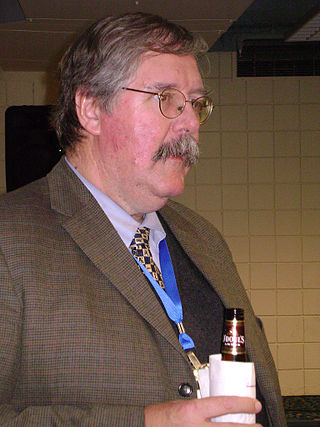
C. Michael Sperberg-McQueen is an American markup language specialist. He was co-editor of the Extensible Markup Language (XML) 1.0 spec (1998), and chair of the XML Schema working group.
Digital classics is the application of the tools of digital humanities to the field of classics, or more broadly to the study of the ancient world.
Steven J DeRose is a computer scientist noted for his contributions to Computational Linguistics and to key standards related to document processing, mostly around ISO's Standard Generalized Markup Language (SGML) and W3C's Extensible Markup Language (XML).
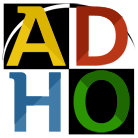
The Alliance of Digital Humanities Organizations (ADHO) is a digital humanities umbrella organization formed in 2005 to coordinate the activities of several regional DH organizations, referred to as constituent organizations.
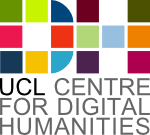
The UCL Centre for Digital Humanities is a cross-faculty research centre of University College London. It brings together digital humanities work being done in many of the university's different departments and centres, including the library services, museums and collections. The Centre counts among the "most visible" in the field and facilitates various opportunities for study at post-graduate level, including the MA/MSc in Digital Humanities, doctoral study, and short courses as part of the Department of Information Studies.

The European Association for Digital Humanities (EADH), formerly known as the Association for Literary and Linguistic Computing (ALLC), is a digital humanities organisation founded in London in 1973. Its purpose is to promote the advancement of education in the digital humanities through the development and use of computational methods in research and teaching in the Humanities and related disciplines, especially literary and linguistic computing. In 2005, the Association joined the Alliance of Digital Humanities Organizations (ADHO).
The Association for Computers and the Humanities (ACH) is the primary international professional society for digital humanities. ACH was founded in 1978. According to the official website, the organization "support[s] and disseminate[s] research and cultivate[s] a vibrant professional community through conferences, publications, and outreach activities." ACH is based in the United States, and has an international membership. ACH is a founding member of the Alliance of Digital Humanities Organizations (ADHO), a co-originator of the Text Encoding Initiative, and a co-sponsor of an annual conference.
COCOA was an early text file utility and associated file format for digital humanities, then known as humanities computing. It was approximately 4000 punched cards of FORTRAN and created in the late 1960s and early 1970s at University College London and the Atlas Computer Laboratory in Harwell, Oxfordshire. Functionality included word-counting and concordance building.
Ray Siemens is a professor in the faculty of humanities at the University of Victoria, British Columbia, Canada and former Canada Research Chair in Humanities Computing. Siemens is a recipient of the Antonio Zampolli Prize, presented by the Alliance of Digital Humanities Organizations (ADHO) for outstanding contributions to the field of Digital Humanities.
The Oxford Concordance Program (OCP) was first released in 1981 and was a result of a project started in 1978 by Oxford University Computing Services (OUCS) to create a machine independent text analysis program for producing word lists, indexes and concordances in a variety of languages and alphabets.
Lou Burnard is an internationally recognised expert in digital humanities, particularly in the area of text encoding and digital libraries. He was assistant director of Oxford University Computing Services (OUCS) from 2001 to September 2010, when he officially retired from OUCS. Before that, he was manager of the Humanities Computing Unit at OUCS for five years. He has worked in ICT support for research in the humanities since the 1990s. He was one of the founding editors of the Text Encoding Initiative (TEI) and continues to play an active part in its maintenance and development, as a consultant to the TEI Technical Council and as an elected TEI board member. He has played a key role in the establishment of many other activities and initiatives in this area, such as the UK Arts and Humanities Data Service and the British National Corpus, and has published and lectured widely. Since 2008 he has worked as a Member of the Conseil Scientifique for the CNRS-funded "Adonis" TGE.

Lorna M. Hughes has been Professor in Digital Humanities at the University of Glasgow since 2015. From 2016 to 2019, she oversaw the redevelopment of the Information Studies subject area The re-launch was marked by an international symposium at the University of Glasgow in 2017.

The Index Thomisticus was a digital humanities project begun in the 1940s that created a concordance to 179 texts centering around Thomas Aquinas. Led by Roberto Busa, the project indexed 10,631,980 words over the course of 34 years, initially onto punched cards. It is considered a pioneering project in the field of digital humanities.
Roy Albert Wisbey was a British medievalist, Professor of German at King's College, London, and one of the leading figures in British German studies. He was also a pioneer in the field of digital humanities, founding the Literary and Linguistic Computing Centre in Cambridge in 1964 and later promoting the establishment of the Centre for Computing in the Humanities at King's. Over a period of 40 years he led the transformation of the Modern Humanities Research Association (MHRA) into a major scholarly publisher. He was recognised by both the German and Austrian governments for his contribution to German Studies.
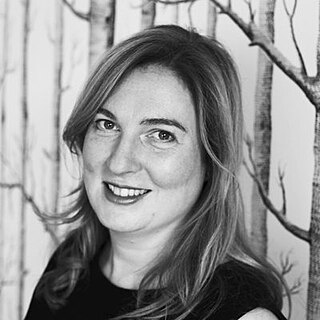
Melissa Mhairi Terras is a British scholar of Digital Humanities. Since 2017, she has been Professor of Digital Cultural Heritage at the University of Edinburgh, and director of its Centre for Digital Scholarship. She previously taught at University College London, where she was Professor of Digital Humanities and served as director of its Centre for Digital Humanities from 2012 to 2017: she remains an honorary professor. She has a wide ranging academic background: she has an undergraduate degree in art history and English literature, then took a Master of Science (MSc) degree in computer science, before undertaking a Doctor of Philosophy (DPhil) degree at the University of Oxford in engineering.
References
- ↑ Boot, Peter (2009). Mesotext. Digitised emblems, modelled annotations and humanities scholarship. Amsterdam: Amsterdam University Press. p. 223. ISBN 978-9085550525.
- ↑ "About The Susan Hockey Lecture in Digital Humanities". University College of London. 14 January 2019.
- ↑ "Launch of the annual Susan Hockey Lecture in Digital Humanities". The Great Parchment Book. May 2015. Retrieved 3 July 2015.
- ↑ "Susan Hockey". Chilton Computing. Retrieved 2 July 2015.
- ↑ Terras, Melissa; Nyhan, Julianne; Vanhoutte, Edward (2013). Defining digital humanities : a reader. Farnham: Ashgate. p. 131. ISBN 978-1409469636.
- ↑ Siemens, Ray; Schreibman, Susan (2013). A Companion to Digital Literary Studies. New York: Wiley. ISBN 978-1118508831.
- ↑ "Susan Hockey - Curriculum Vitae & Publications". European Association for Digital Humanities. Retrieved 4 November 2018.
- ↑ "Roberto Busa Prize". Alliance of Digital Humanities Organisations (ADHO). Retrieved 2 July 2015.
- ↑ Nyhan, Julianne; Flinn, Andrew (2016). Computation and the Humanities. Springer Series on Cultural Computing. doi:10.1007/978-3-319-20170-2. ISBN 978-3-319-20169-6. S2CID 35935691.
- ↑ "Text Encoding Initiative". TEI 2008 Steering Committee. Retrieved 3 July 2015.